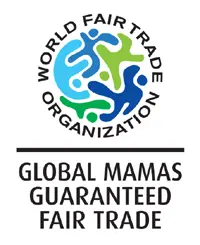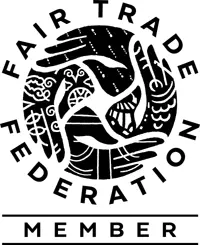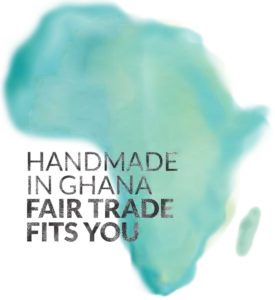Akuse, a town near the Volta River in Ghana’s Eastern Region, is home to Global Mamas’ newest eco initiative. In collaboration with local communities our team is using invasive water hyacinth as the raw material for an all-new collection of natural fiber products.
Known locally as the “poison flower,” the hyacinth earned its nickname from area fisherman who over time have identified that wherever the plant grows, fish and other aquatic life fail. This effect is caused in part by the weeds’ aggressive growth, forming thick mats across the surface of the water and blocking sunlight. Water hyacinth also has thick stems which efficiently suck oxygen and other necessary nutrients out of the water, harming native species.
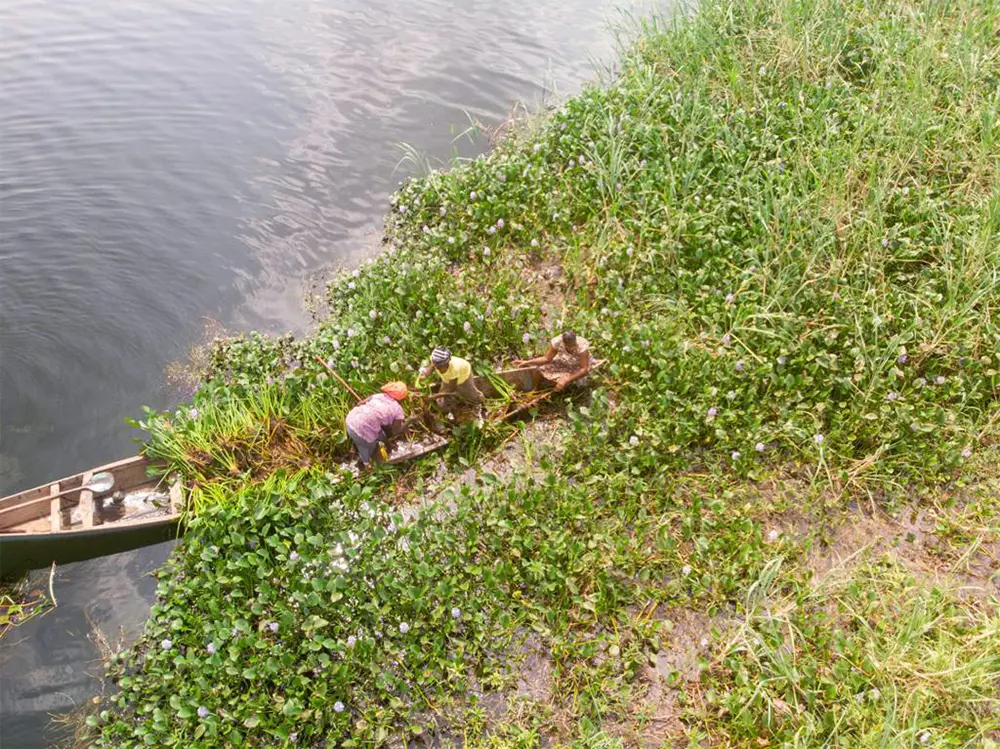
Presented with this ecological challenge, Global Mamas saw an opportunity to restore biodiversity, but also create economic opportunity for individuals living in affected communities. Through this initiative over the past six months we’ve been able to create jobs not only for weavers and paper makers transforming the fibers into home goods, but also for those actually harvesting the weed from the river.
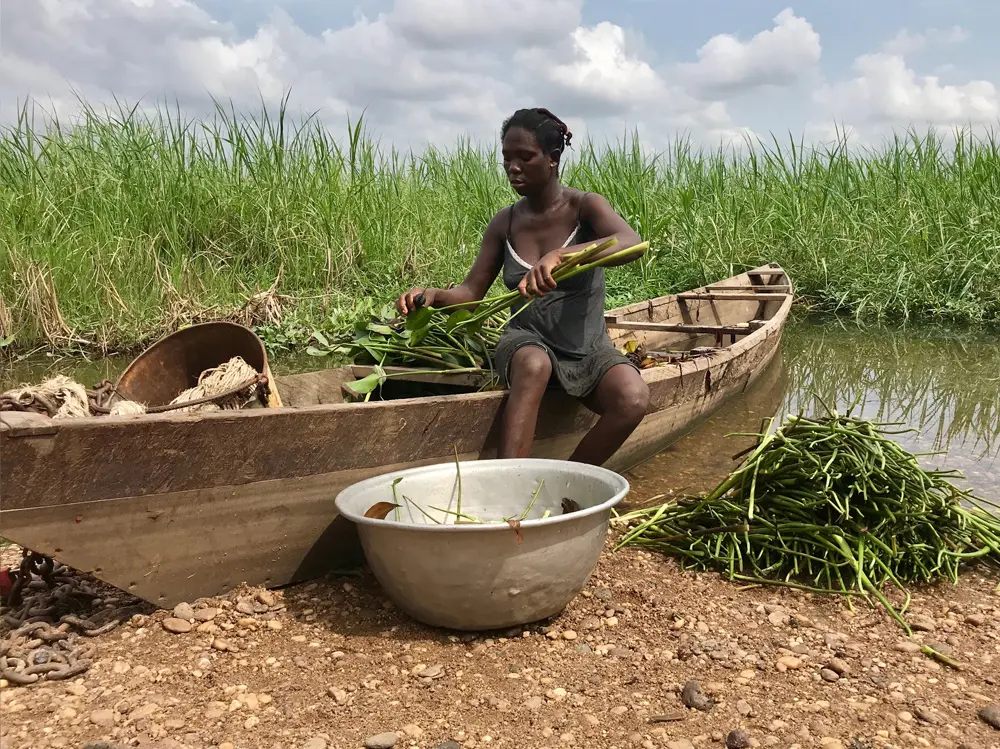
Global Mamas is now working with cooperatives in five different communities that are harvesting and processing the raw water hyacinth into fibers for our production team. Each week co-op members deliver their hyacinth to our Akuse office. They are paid upon delivery for both the wet stalks required for paper, and the dry stalks required for weaving. In addition to the agreed upon price, Global Mamas pays a 5% premium into an overarching community fund, which is managed by a Community Resource Management Area (CREMA).
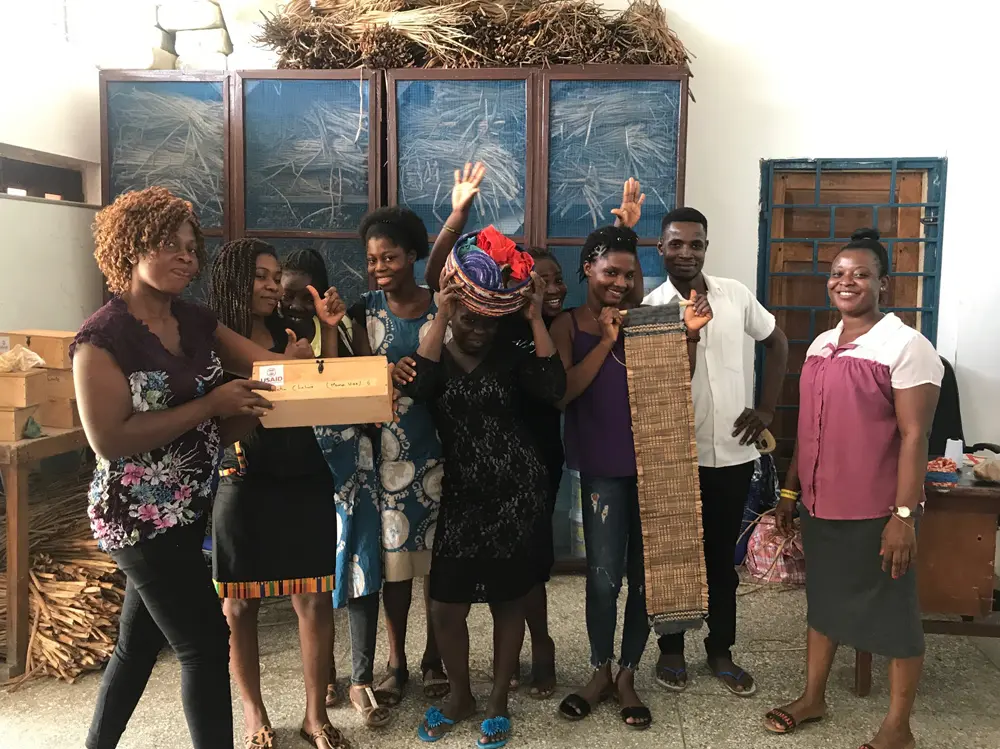
The CREMA approach was initially developed by the Wildlife Division of the Ghanaian Forestry Commission, to address wildlife management outside protected areas and forest reserves. Due to the models great success with community based resource management, the program is now being used to manage a variety of natural resources. With our partners at Nature Conservation Research Center (NCRC) we’ve been participating in meetings, training and workshops aimed at educating community members on the rights they have to advocate for their own natural resources.
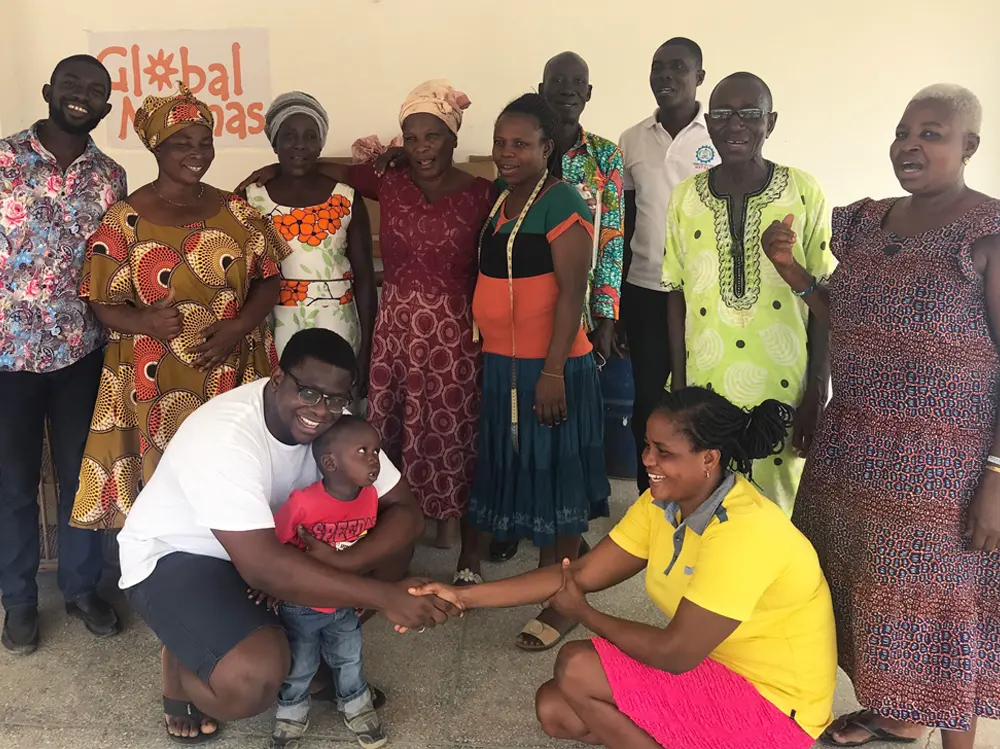
The 5% premium Global Mamas pays to the CREMA is used at their discretion for projects that will benefit the entire community, such as sanitation projects like toilet construction. This puts the community in a better position to have a say over their own local natural resources.The real power of the Fibers of Change project is not just its ability to create jobs, but to open up a community wide discussion about environmentalism, natural resource protection, and a community based approach to resource management.

